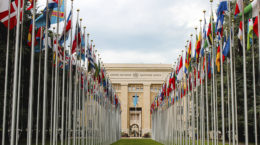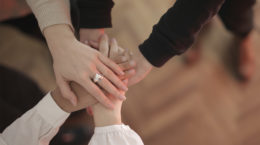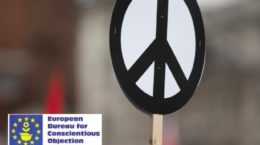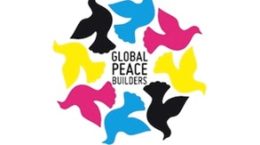Dear Ambassadors,
Ahead of this year’s annual open debate on women, peace and security (WPS), and one year before the 25th anniversary of Resolution 1325 (2000), we write to you as civil society organizations dedicated to peace, women’s rights and gender equality to urge you to redouble your efforts to fulfill the highest ideals of the WPS agenda.
Today, we are confronted with record levels of armed conflict, militarization and military spending, which undermine gender equality, threaten to reverse decades of progress on women’s rights, and jeopardize global efforts for peace. Women and marginalized groups bear the brunt of conflicts and crises, including conflict-related sexual violence, poverty, forced displacement and hunger. Increased militarization has been accompanied by multi-pronged assaults on universal norms, especially international human rights and humanitarian law; on women human rights defenders and civil society space; and on democracy itself.
Further, an escalating global backlash against gender justice and the human rights and bodily autonomy of women and LGBTQIA+1 people, compounded by their systematic exclusion from international decisionmaking and peacemaking, means that those most adversely affected by armed conflict are also those whose voices are most marginalized.
The WPS agenda’s vision of peace and equality2 has never been so important – or so under threat
The cost of the international community’s failure to fully implement the WPS agenda over the past 24 years can be measured in lives lost, rights denied and conflicts prolonged. Yet, feminist movements continue to fight back against misogyny and repression for a more just and peaceful future. They refuse to accept anything less than their rights – and neither should you.
The UN Security Council cannot afford to let another anniversary pass without meaningful progress on protecting women’s rights in conflict. We therefore urge you to take decisive action in the following 10 areas and implement them in all crises on its agenda3:
- Prevent, avert and end conflict. Ending violence is the most effective means to protect the rights of women and girls in all conflicts and crises. As enshrined in the UN Charter, it is the primary responsibility of the Security Council to maintain peace and security. Conflict prevention requires addressing the gendered drivers of conflict, including patriarchy; all forms of inequality, including socioeconomic inequality; multiple and intersecting forms of discrimination; exclusion; and violation of human rights. There is no situation in which gender equality and women’s rights are not relevant. We therefore urge the Security Council to ensure that the rights of women and girls are fundamental to all international peace and security processes, including its own decisions, without exception. Further, the Council must uphold international human rights and humanitarian law, and all relevant Security Council resolutions, including on WPS, and step up preventive diplomacy to ensure inclusive, gender-responsive, long-term and peaceful resolution to all conflicts.
- Reform the Security Council. The credibility of the Security Council to meaningfully fulfill its mandate has been fundamentally shaken by its inability to effectively address conflicts, including, most recently, Israel’s brutal war in Gaza and Russia’s invasion of Ukraine, both of which have had devastating consequences for the rights of women and marginalized communities. We urge you to commit to Security Council reform in order to build a more representative, transparent, democratic and accountable multilateral system that can effectively deliver on the UN Charter’s promise of peace. This should include credible, timely and decisive Security Council action to prevent or end the commission of genocide, crimes against humanity and war crimes, and lead to ending the use of the veto on resolutions aimed at stopping mass atrocities. We further urge you to sign the Accountability, Coherence and Transparency Group’s Code of Conduct, thereby pledging not to vote against a credible draft resolution before the Security Council aimed at stopping such crimes.
- Stop arms transfers when there is a substantial risk that they may be used to “commit or facilitate serious acts of gender-based violence or serious acts of violence against women and children,” or if Member States have knowledge or should have known at the time of authorization that they would be used in the commission of genocide, crimes against humanity, grave breaches of the Geneva Conventions, attacks directed against civilians or civilian objects, or other war crimes, in line with the Arms Trade Treaty (ATT). Compliance with obligations and norms on disarmament, arms control and non-proliferation4 is critical to conflict prevention, and backsliding on disarmament commitments risks future violence. States have a legal obligation to comply with arms embargoes imposed by the Security Council. We further urge you to cut military spending and instead increase funding for gender equality and global humanitarian responses to ensure no needs go unmet.
- Defend women’s human rights. Women’s civil, political, economic, social and cultural rights, as enshrined in international law and Security Council resolutions, are the foundation of the WPS agenda.5 The Security Council must therefore center human rights, especially the rights of women, girls and LGBTQIA+ people, in all peace and security discussions, processes and decisions; take coordinated action to counter gender backlash; and reject any outcomes that undermine women’s rights. Council members must also consistently, and publicly, demand that warring parties and other relevant actors immediately abolish any laws, policies or practices that prevent or restrict the full enjoyment of women’s human rights in accordance with international standards.
- Advance reproductive justice. Reproductive autonomy, and the right to live in safe, peaceful and sustainable communities, is essential for women in conflicts and crises everywhere. We urge Security Council members to protect and uphold sexual and reproductive health and rights (SRHR) in accordance with international standards, including relevant WPS resolutions, in all conflict situations on its agenda.6 We further urge you to politically and financially support comprehensive, high quality and non-discriminatory SRHR services, including access to contraception, safe abortion and maternal health care, and fully integrate these rights into crisis prevention, response and recovery plans.
- Insist on women at the table. Women have the right to full and equal representation.7 Politically and financially support the full, equal, meaningful and safe participation and leadership of diverse women8 at all levels and stages of decision-making, with the target of 50%.9 In particular, we urge you to prioritize women’s direct participation in formal Track 1 or high-level peace and political processes, especially the meaningful representation of women human rights defenders, peacebuilders and feminist movements. Women must be able to influence the outcome and implementation of negotiations, across all issues. Further, demand the equal, direct and influential participation of women as a standard requirement across all UN-supported peace processes and convenings.10 The Security Council, the UN and Member States must not endorse, facilitate, participate in or support peace or political processes where women are excluded.
- Support principled humanitarian action. Ensure gender-responsive, locally-led humanitarian action, and safe, unhindered humanitarian access to affected populations of all genders and diversities, as required by international humanitarian law. A principled humanitarian response is only possible when it centers non-discrimination and the fundamental human rights and participation of diverse women.11 Allowing discriminatory laws, policies and practices to determine or impose constraints on how humanitarian actors operate — such as by deploying male-only response teams or denying access to services based on sexual orientation and gender identity — undermines humanitarian principles, limits access to diverse women and girls, reinforces exclusion and further threatens women’s rights. Support diverse women’s participation in the design and implementation of, and all decision-making on, humanitarian action.
- Demand justice and accountability. All violations of women’s rights, including all forms of gender-based violence, conflict-related sexual violence and attacks against women human rights defenders, must be publicly condemned, thoroughly and swiftly investigated, and perpetrators held accountable. Respect for international humanitarian and human rights law, including compliance with provisional measures of the International Court of Justice (ICJ); upholding the obligation to prevent genocide; and ending impunity, are paramount obligations of Member States and essential for securing justice for survivors. We urge you to pursue accountability strategies that center gender, including by considering codifying gender apartheid, supporting prosecutions of gender persecution at the International Criminal Court, and ensuring accountability for violations of the Convention on the Elimination of All Forms of Discrimination Against Women (CEDAW) at the ICJ. All justice and accountability efforts, including reparations processes, must be rights-based and survivor-centered, in order to avoid replicating harm, promote recovery and address root causes of violations, such as discrimination and inequality
- Stand with feminist movements, the heart of the WPS agenda. The UN and all Member States must commit to and fully implement a zero-tolerance approach12 to any form of attack, intimidation, retaliation or reprisal against diverse women for their political participation, human rights and humanitarian work, peacebuilding activities or cooperation with UN mechanisms, including the Security Council. However, protection must never compromise participation. It is critical that independent and diverse women civil society and human rights defenders continue to inform all peace and security policymaking, including Security Council discussions;13 that their independent selection and views are fully respected; and, most importantly, that their recommendations are acted upon.
- Fund peace, not war. Increase funding to local women-led, women’s rights and LGBTQIA+ organizations, networks and movements, and support initiatives that promote gender equality and feminist leadership. Provide direct, accessible, long-term and flexible funding to, and promote partnerships with, women civil society, in order for them to work safely, sustainably and effectively, free of impediments.14 Meet the minimum target of earmarking 15% of funds for programs that advance gender equality and allocate a minimum of 1% of overseas development assistance for women’s rights and women-led peacebuilding organizations by 2025 with a firm commitment to increasing it in the future.15 We further urge you, as donors, to support the independence and integrity of civil society organizations, especially organizations working on contested issues, to ensure that they are able to sustain their indispensable work, free of obstacles or interference.
Over the last 24 years, women civil society, including human rights defenders, peacebuilders and feminist movements, have stood on the frontlines of conflict: advocating for peace, elevating the voices of affected communities, and speaking truth to power – all while charting a clear path toward more just, equal and peaceful societies. Ahead of the 25th anniversary of Resolution 1325, the women, girls and LGBTQIA+ people of Afghanistan, the Central African Republic, Colombia, the Democratic Republic of the Congo, Haiti, Iraq, Libya, Mali, Myanmar, the Occupied Palestinian Territory, Somalia, South Sudan, Sudan, Syria, Ukraine, Western Sahara, Yemen and all other crises on the Security Council’s agenda will be looking to you to deliver on 25 years of promises.
Sincerely,
- NGO Working Group on Women, Peace and Security
- Amnesty International (AI)
- Center for Reproductive Rights (CRR)
- Consortium on Gender, Security and Human Rights (CGSHR)
- Global Justice Center (GJC)
- Global Network of Women Peacebuilders (GNWP)
- Global Partnership for the Prevention of Armed Conflict (GPPAC)
- Human Rights Watch (HRW)
- International Alert (IA)
- MADRE
- Nobel Women’s Initiative (NWI)
- Outright International
- Refugees International (RI)
- Women Enabled International (WEI)
- Women for Women International (WfWI)
- Women’s International League for Peace and Freedom (WILPF)
- Women’s Refugee Commission (WRC)
- International Center of Civil Initiatives “Our House”
1 LGBTQIA+ refers to lesbian, gay, bisexual, transgender, queer, intersex, asexual and other gender-diverse people.
2 Security Council Resolutions 1325 (2000), 1820 (2008), 1888 (2008), 1889 (2008), 1960 (2010), 2106 (2013), 2122 (2013), 2242 (2015), 2467 (2019), and 2493 (2019).
3 Afghanistan, Bosnia and Herzegovina, Central African Region, the Central African Republic (CAR), Colombia, Cyprus, Democratic People’s Republic of Korea, the Democratic Republic of the Congo (DRC), Great Lakes Region, Haiti, Iraq, Kosovo, Lebanon, Libya, Mali, Myanmar, the Occupied Palestinian Territory, Somalia, South Sudan, Sudan, Syria, Ukraine, West Africa and the Sahel, Western Sahara and Yemen.
4 Intensify efforts towards reducing the flow of small arms and light weapons (SALW) by implementing all relevant treaties and protocols, including the ATT, Protocol against the Illicit Manufacturing of and Trafficking in Firearms, Their Parts and Components and Ammunition (General Assembly Resolution 55/255 (8 June 2001), undocs.org/a/res/55/255) and the Programme of Action to Prevent, Combat and Eradicate the Illicit Trade in Small Arms and Light Weapons in All Its Aspects (UN PoA) (UN PoA, 2001, A/CONF.192/15, https://undocs.org/en/A/CONF.192/15(SUPP)).
5 Convention on the Elimination of All Forms of Discrimination against Women, 18 December 1979, UNTS 1249, https://www.ohchr.org/en/instruments-mechanisms/instruments/convention-elimination-all-forms-discrimination-against-women; Beijing Declaration and Platform For Action, 15 September 1995, https://www.un.org/womenwatch/daw/beijing/pdf/BDPfA%20E.pdf; Global Study on the Implementation of UN Security Council Resolution 1325, 2015, https://wps.unwomen.org/.
6 International humanitarian law (IHL) and customary IHL protect sexual and reproductive health and rights (SRHR), including access to safe abortion, through: the right to all necessary medical care without adverse distinction, including for pregnant women (Common Article 3 to the Geneva Conventions; Geneva Convention III, art. 14; Additional Protocol I to the Geneva Conventions, Arts. 8, 10; Additional Protocol II to the Geneva Conventions, Art. 7; Customary IHL Database Rule 88); prohibiting rape and other forms of sexual violence (Customary IHL Database Rule 93); and prohibition of “cruel treatment and torture” and “outrages upon personal dignity, in particular humiliating and degrading treatment” (Common Article 3). Under international human rights law, SRHR are protected including through the rights to: life (ICCPR Art. 6; CRC Art. 6; UDHR Art. 3; CRPD Art. 10); health (CERD Art. 5(e)(iv); ICESCR Art. 12; CEDAW Arts. 11(1)(f), 12, 14(2)(b); CRPD Art. 25; CRC Art. 24, UDHR Art. 25); privacy (ICCPR Art. 17; CRC Art. 16; UDHR Art. 12; CRPD Art. 22); liberty and security of person; freedom from torture and other cruel, inhuman or degrading treatment (CAT; ICCPR Art. 7; UDHR Art. 5; CRPD Art. 15; CRC Art. 37); freedom of thought, conscience, and religion or belief (ICCPR Art. 18); equality and non-discrimination (UDHR Art. 2; ICCPR Arts. 3, 26; ICESCR Art. 2; CERD Art. 1; CEDAW Arts. 1 and 2); and to seek, receive, and impart information (ICCPR Art. 19; UDHR Art. 19; CEDAW Arts. 10, 14, 16; CRPD Art. 21; CRC Arts. 13, 17).
SRHR are also protected by Security Council resolutions 1889 (2009), 2106 (2013), and 2122 (2013)
See also WHO Abortion Care Guideline, “Web Annex A: Key international human rights standards on abortion,” 2022, https://iris.who.int/bitstream/handle/10665/349317/9789240039506-eng.pdf; Center for Reproductive Rights, “Accountability for Sexual and Reproductive Health and Rights in Humanitarian Settings,” 7 June 2021, https://reproductiverights.org/wpcontent/ uploads/2021/06/SRHR-humanitarian-settings-6-2021.pdf.
7 Under the equality provisions of international human rights law, women have the right to full and equal representation, and States have a duty to guarantee that women fully exercise their human rights on an equal footing with men, free from discrimination. The binding principles of equality and nondiscrimination form the backbone of the international human rights protection system, and are enshrined in the UN Charter Art. 1(3), UDHR Art. 2, ICCPR Arts. 2, 3, 25, ICESCR Arts. 2, 3, CEDAW Arts. 7, 8, Human Rights Committee General Comment 28, and CEDAW Committee General Recommendations 23, 25, 28 and 30, in addition to Security Council Resolutions 1325 (2000), 1820 (2008), 1889 (2009), 2106 (2013), 2122 (2013), 2242 (2015), 2467 (2019) and 2493 (2019).
8 “Diverse women” includes women from minority, ethnic and religious groups, LGBTQIA+ individuals, young women, displaced and migrant women, women with disabilities, and other marginalized groups. CEDAW General recommendation No. 30 on women in conflict prevention, conflict and post-conflict situations, 6, 36, 1 November 2013, undocs.org/CEDAW/C/GC/30.
9 See “2023 Open Letter to Permanent Representatives to the United Nations in advance of the annual Open Debate on Women, Peace and Security,” NGO Working Group on WPS, 16 October 2023, https://www.womenpeacesecurity.org/resource/open-letterun- wps-2023/.
10 In 2023, the UN led/co-led 4 peace processes, including the Geneva International Discussions on the conflict in Georgia, Libya, Sudan, and Yemen. There are also currently at least 44 countries where UN peace operations and/or special envoys are involved in mediation or peacebuilding: Afghanistan, Angola, Benin, Burkina Faso, Bosnia and Herzegovina, Burundi, Cabo Verde, Cameroon, CAR, Chad, Colombia, Côte d’Ivoire, Cyprus, Djibouti, DRC, Equatorial Guinea, Eritrea, Ethiopia, Gabon, The Gambia, Ghana, Guinea, Guinea-Bissau, Haiti, Iraq, Kenya, Kosovo, Lebanon, Libya, Mali, Mauritania, Myanmar, Niger, Nigeria, Palestine, Rwanda, Sao Tome & Principe, Senegal, Somalia, South Sudan, Syria, Togo, Western Sahara and Yemen.
11 The principle of neutrality cannot be used to undermine the guarantee of non-discrimination in humanitarian settings. The principle of ‘do no harm’ cannot be upheld if humanitarian action reinforces discrimination and fails to actively protect and promote human rights. Failing to counter gendered protection risks, for example, undermines the principle of ‘do no harm.’ Center for Reproductive Rights, “Accountability for Sexual and Reproductive Health and Rights in Humanitarian Settings,” 7 June 2021, https://reproductiverights.org/wp-content/uploads/2021/06/SRHR-humanitarian-settings-6-2021.pdf. See also OCHA, “Policy Instruction on Gender Equality 2021-2025,” https://www.unocha.org/publications/report/world/policy-instruction-genderequality- 2021-2025; UNHCR, “Emergency Handbook: Humanitarian Principles,” 2021, https://emergency.unhcr.org/entry/44765/humanitarianprinciples.
12 Statement of Shared Commitments on Women, Peace and Security, https://ambasadat.gov.al/united-nations/ova_dep/albaniaspriorities- in-the-council/; Report of the Secretary-General on Cooperation with the United Nations, its representatives and mechanisms in the field of human rights, 20 August 2024, https://undocs.org/A/HRC/57/60.
13 UN Security Council Resolution 2242 (2015), https://undocs.org/S/RES/2242(2015).
14 This includes removing bureaucratic and administrative barriers to equitable partnerships with women’s organizations in relation to proposal processes, partnership agreements, and reporting requirements.
15 For example, support the UN Secretary-General’s call to multiply by five direct assistance to women’s organizations. Report of the Secretary-General on women, peace and security, 113(d), 25 September 2020, undocs.org/s/2020/946.








